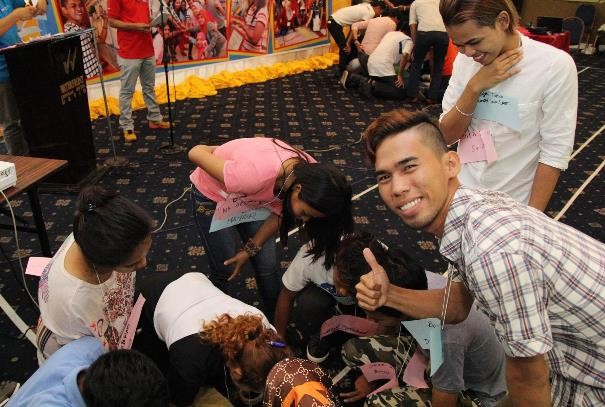
December 2016—In Zamboanga City and other conflict-affected areas of Mindanao, the southern region of the Philippines, nearly a quarter of the youth are out of school—more than twice the national average.
Until recently, Rondulf Egbus, 24, faced limited opportunities because he was not working or going to school. Compounding his troubles, as a member of the lesbian, gay, bisexual, transgender and intersex (LGBTI) community, he endured stigma and criticism associated with his gender identity.
Egbus graduated from high school and started college. But his classmates relentlessly taunted him. Distracted from his studies and feeling unwelcome and unsafe, he stopped going to school.
That is when Egbus was introduced to USAID’s Mindanao Youth for Development program. Launched in 2013, the program establishes a safe environment for young people like Egbus to gain work and life skills, and build self-confidence as they participate in activities that prepare them for a productive adulthood.
In January 2016, Egbus joined the program’s refrigeration and air-conditioning servicing course, conducted by the nationally accredited Technical Education and Skills Development Authority training center. The course involved tasks like carrying heavy equipment. Because of negative LGBTI stereotypes, some people in the community questioned the appropriateness of Egbus’ chosen course and his ability to complete it.
A now purposeful Egbus did not let this attitude deter him. With a new determination resulting from the program’s life skills training, he rose above the stigma that previously kept him from accessing opportunities.
Ebgus graduated from the USAID program in June 2016, and was selected to serve as a youth representative on the Zamboanga City Out-of-School Youth Development Alliance. The group, chaired by the mayor and composed of other government agencies and private sector partners, provides civic engagement activities, entrepreneurship opportunities and job placement for the city’s youth.
He now works part-time and also volunteers as a city health peer educator to raise youth awareness on HIV and other issues.
“I am confident, skilled and worthy of respect of other people,” said Ebgus, who credits the life skills training with helping him to become a stronger leader and problem solver.
Egbus is among the 19,000 youth that USAID is equipping with life skills, basic education and vocational skills training throughout conflict-affected areas of Mindanao. The five-year, $11 million program provides inclusive workforce development training and support for vulnerable youth, establishing pathways for them to take charge of their futures and contribute to peace and stability in their communities.
LINKS
Follow @USAID_Manila, on Facebook, on Flickr, on YouTube







Comment
Make a general inquiry or suggest an improvement.